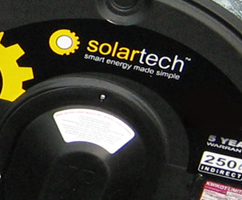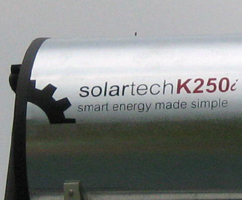

January 7 2011Eskom has said for some time that its demand-side management (DSM) programme would be a key factor in determining the power supply gap until new baseload stations were brought on line from next year. Eskom chief executive Brian Dames reiterated the point yesterday, when he said: ?We have already enlisted the support of our largest industrial customers. If all other consumers give us the same co-operation in reducing demand, we will be able to provide everyone with enough power to keep the lights on.? Started in 2003, Eskom?s R5.4 billion DSM programme targeted a cumulative reduction of electricity use of 3 000 megawatts by consumers by March. But according to the power utility?s 2010 annual report, it is now two years behind on this target because of financial pressures. The DSM programme is verified independently as short-term demand savings are a component of electricity prices as determined by the National Energy Regulator of SA. The DSM programme focused initially on average demand savings in peak periods, but has since expanded to product roll-outs, including energy efficient lighting, solar water heaters and improving the efficiency of electric motors and pumps. A year ago, Eskom raised by up to 120 percent the rebate it offers consumers on the installation of solar water heaters by accredited suppliers after the power utility failed to solicit much response in the first two years of operation. The utility is targeting demand reduction of 530MW from the installation of 250 000 solar water heaters over three years, but processed and settled only 3 455 rebates in 2010. Policy and regulatory amendments to enforce installation of solar water heating in new buildings are expected to boost the utility?s programme. The company completed a programme to replace incandescent bulbs with compact fluorescent lightbulbs in August, having handed out 8 million of the energy-saving bulbs in four provinces free of charge. According to Eskom?s annual report, research is under way to develop innovative solutions in energy efficiency, DSM and customer behavioural change, while other focus areas would include lighting, heating and air-conditioning.
Source: www.iol.co.za , ? Ingi Salgado |




